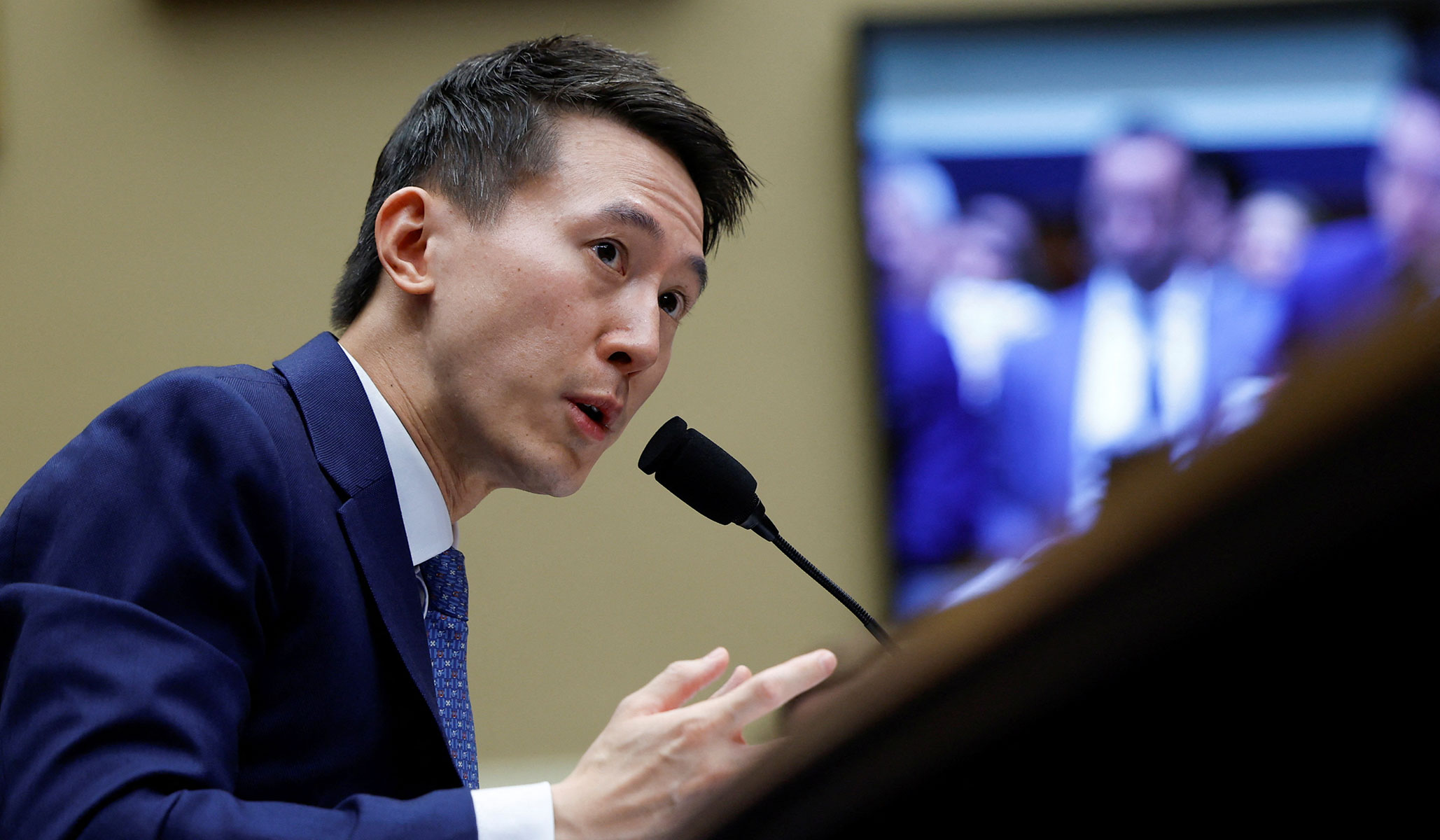


TikTok CEO Shou Zi Chew’s misleading and evasive testimony before the House Energy and Commerce Committee on Thursday adds to the substantial case that the app should be subject to a forced sale or a ban.
Chew’s odds of swaying lawmakers already skeptical of his brief were never that great to begin with, but the hearing became a demonstration of bipartisan resolve to counter the national-security threat posed by TikTok.
What Chew wouldn’t — or couldn’t — say was almost as important as what new information he did bring to light. Lawmakers would not let Chew forget that he was testifying under threat of perjury, as if he needed a reminder, and he obviously dodged many questions. That did not help his case.
Under questioning from Chairwoman Cathy McMorris Rodgers, Chew wouldn’t say with 100 percent certainty that TikTok could resist orders from the Chinese Communist Party to boost pro-Beijing content during an invasion of Taiwan. He only offered vague platitudes about keeping the platform free from foreign manipulation.
He said that his attorneys at TikTok helped to prepare him for the hearing, but he deflected questions about whether individuals at ByteDance assisted.
When Representative Debbie Lesko asked if he agrees that the Chinese government has persecuted Uyghurs, he repeatedly dodged, declining to condemn the mass atrocities — which ByteDance has pledged to help cover up in tandem with the Chinese police.
Another obfuscation: While Chew said he condemned a ByteDance program to track the locations of specific U.S. journalists on American soil, he was also unapologetic and defensive when lawmakers called the spy campaign just that. Asked if ByteDance has spied on American citizens, Chew said: “I don’t think that spying is the right way to describe it.”
And whether employees in China continue to have access to the data of U.S. users, according to Chew, “is a complex topic.”
Crucially, the hearing also brought new facts to light — and put the lie to TikTok’s effort to convince Americans that the company is somehow walled off from ByteDance.
“I report to the CEO of ByteDance,” Chew told Representative Lizzie Fletcher, stating what should have been obvious to most people all along. He testified that some of his compensation comes from ByteDance and that he holds stock in the company.
Chew is also a former CFO of ByteDance, and during his time in the venture-capital world, he oversaw some of the initial investments that turned ByteDance into the behemoth that it is today.
ByteDance’s relationship with Chinese Communist Party entities is as extensive as it is disturbing. Chew was asked a few times about ByteDance chief editor Zhang Fuping, who also leads ByteDance’s internal Chinese Communist Party cell. While Chew gave the impression that he’s only vaguely aware of Zhang’s existence, the very fact that the party has a cell in the company that owns TikTok is significant.
And, as detailed in a new report submitted to the Australian senate this month, ByteDance has partnerships with several Chinese surveillance firms that have been blacklisted by the U.S. government. One of these firms, which hosts ByteDance data centers, also helps the Chinese military perform nuclear-test simulations. Other ByteDance collaborations include a government-backed, artificial-intelligence research center in Beijing.
Chew came to Congress partly hoping to convince lawmakers to get on board with a plan that TikTok claims would protect U.S. user data from misuse by Chinese entities via ByteDance. Clearly, no one’s buying it, as virtually every member of the 52-person committee told him. The skepticism expressed by representatives on both sides of the aisle left TikTok fuming. The company’s COO Vanessa Pappas took to Twitter to complain: “It’s a shame today’s conversation felt rooted in xenophobia.”
That’s the kind of line that might get TikTok out of its mess if it were in trouble with the Berkeley student senate. Instead, it faces a congressional coalition of Democrats and Republicans that appears more serious than ever about crafting a durable solution to this national-security mess.
